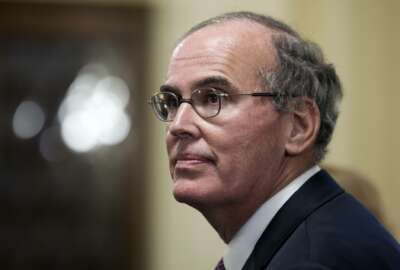Since Michael Missal took over as inspector general at the Veterans Affairs Department about a year ago, his office has turned up some improvements, some deteriorations and the odd surprise.
The Good
One area of improvements Missal has seen is the VA Choice program.
The law, signed by President Barack Obama in August 2014, allows veterans who have waited more than 30 days for an appointment to get VA-paid care from a local doctor. It also allows veterans who live at least 40 miles from a VA hospital or clinic to receive private care and makes it easier to fire VA employees accused of wrongdoing.
The program struggled early on, with low participation rates among both providers and veterans.
“What we found is that for the time period we looked at, there were 1.2 million veterans added to the list, meaning that they were eligible to sign up for Choice,” Missal said on Veterans Affairs Month. “They then had to go through the process of filling out paperwork. The facilities had to have people there to process the paperwork. Medical records had to be transferred to the provider in the community, etc. What we found of the 1.2 eligible, only 283,000 opted into the program, and of those, only 149,000 actually received an appointment.”
Missal characterized these issues as “administrative burdens” to signing up, but said improvements have been made.
“”I would like to emphasize this was the first 11 months of the program. I understand there have been changes and enhancements made to it,” he told Federal Drive with Tom Temin.
Missal said that the number of positions in the provider network are up by 70 percent to 80 percent.
The House VA committee just passed a bill that would allow the department to continue the Veterans Choice Program past its original Aug. 7 sunset date. It would let VA continue to use the remaining appropriations — about $1 billion — to spend on care in the community.
Senate VA Committee Chairman Johnny Isakson (R-Ga.) and Ranking Member Jon Tester (D-Mont.) introduced a companion bill to extend the VA Choice Program deadline.
Once Congress clears an extension, VA Secretary David Shulkin said he’d like to work with Congress on a redesign that would let the department more easily administer Choice.
“We want to come back and we want to work with you on a redesigned Choice 2.0,” Shulkin said. “We’re going to have a better name for that too. We really want to get that done with you by September.”
The Bad
Missal said an independent audit of VA finances turned up six material weaknesses and two significant deficiencies, signifying a deterioration compared to the previous year.
The problem areas identified as material weaknesses include:
- Education benefits accrued liability.
- Community care obligations.
- Chief financial officer organizational structure.
Missal briefly expanded on some of these issues, such as the fact that VA’s financial reporting system is an outdated legacy system that requires too much manual input of data.
“My understanding is that VA is moving to a shared services model, where they will take advantage of a system at another federal agency that’s more current and updated from the FMF system that VA currently uses,” he said.
Another issue within financial reporting is that the chief financial officer doesn’t have enough authority over the CFOs of component agencies like the Veterans Health Administration or the Veterans Benefit Administration.
“Under the CFO Act, VA like other federal agencies is required to have a chief financial officer, but it doesn’t designate below the reporting structure,” Missal said. “And what we identified in the financial statement as a material weakness is that the CFO does not have the kind of authority that a traditional CFO does over the financial reporting structure.”
The Ugly
Missal said that while VA requires employees to pass the Office of Personnel Management background checks, the agency also performs its own supplemental investigations. He said VA employees frequently start working after OPM’s investigations are finished, but before the agency’s checks are done.
Unfortunately, the backlog of investigations needing to be finished has been growing steadily. While investigating this issue, the OIG found that the facility in Atlanta was a particularly bad offender. But the investigation found that a growing backlog wasn’t the only thing wrong in Atlanta.
“I will note that we found one other thing in Atlanta, as we were looking at this, which is that VA is a drug-free workplace program,” Missal said. “What that means is that new employees are getting drug-tested as well as others on a random basis. For a period of time, the coordinator of that office had left and hadn’t filled that position and the testing wasn’t done for about a seven-month period.”
He said his office identified that as a problem, and that the facility should have controls in place and have fixed the issue by now.
Copyright
© 2024 Federal News Network. All rights reserved. This website is not intended for users located within the European Economic Area.
